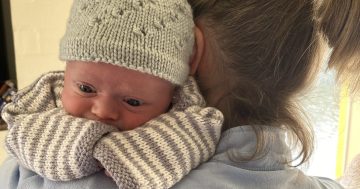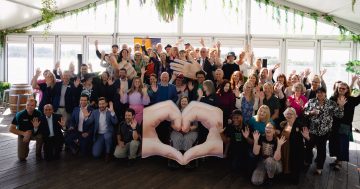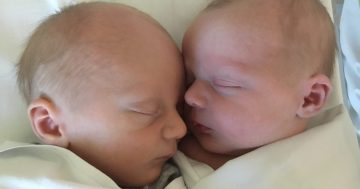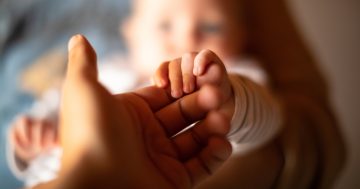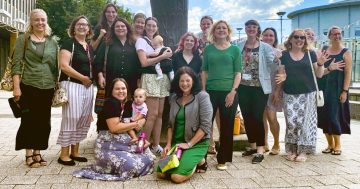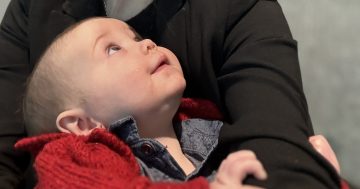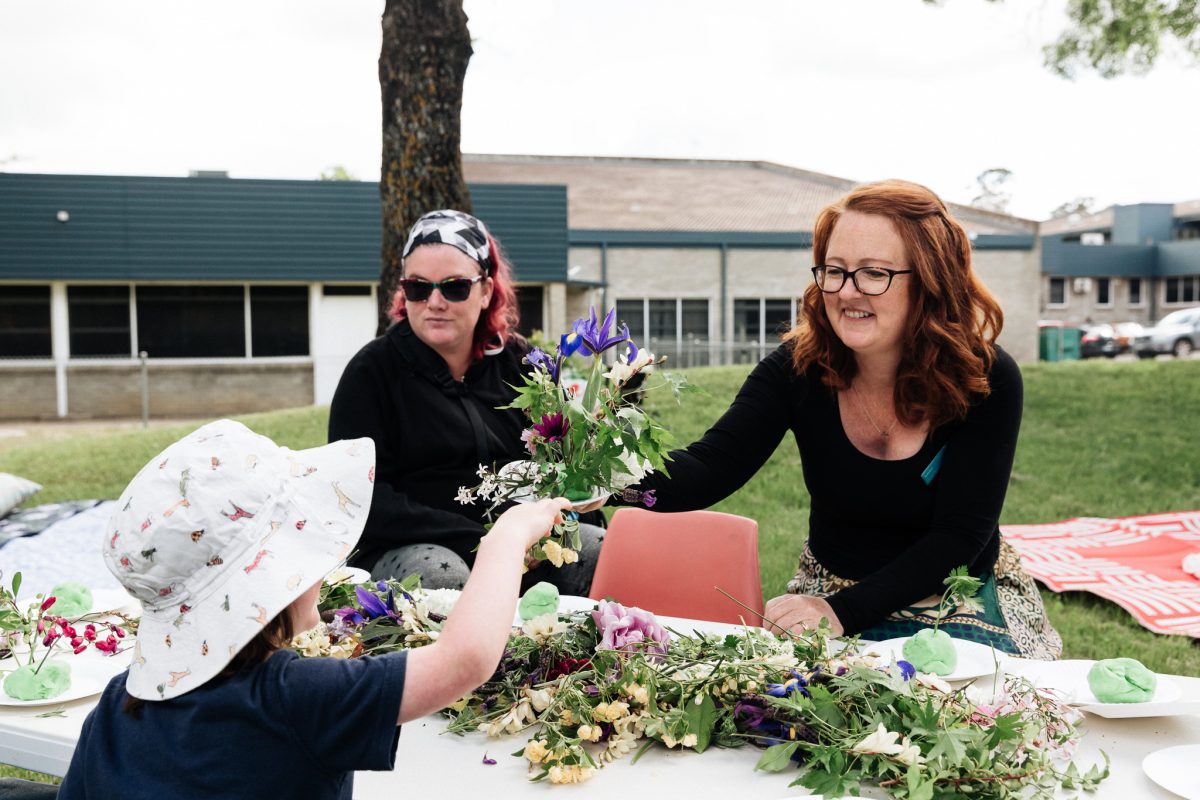
The number of women seeking help for postnatal depression and anxiety in Canberra has doubled in the past three years. Photo: Perinatal Wellbeing Centre.
When Imogen* met her new baby boy for the first time, she felt “numb”.
“I was told when you first see your baby’s face, you’ll know a love you’ve never felt before,” she said.
“That’s not what happened for me.”
Following a difficult pregnancy, relationship issues and a traumatic birth, Imogen became one of the one in eight Australian women diagnosed with post-natal depression.
As someone who never had a serious or sustained mental health issues previously, Imogen was blindsided by what she experienced.
“I started to feel very anxious, depressed and felt like running away. I felt no attachment to my son,” she said.
“Yes I had a powerful sense of obligation to take care of him, but I felt like I just couldn’t do anything right, I was constantly crying and couldn’t accomplish any tasks.”
Giving birth just before the first COVID lockdown in 2020 didn’t help. Images of mum and bub yoga, swimming lessons and mothers’ groups went up in smoke.
She also found it difficult to attend her son’s check-ups.
“I remember feeling like I’d personally gone through something traumatic with my birth and body and it felt like I didn’t matter, only the baby did,” Imogen said.
“It was like I was there to keep him alive but no-one was there to look after me.”
Imogen also felt the experience of becoming a mother was nothing like what people had told her to expect.
“Everyone said I would be completely transformed into a vessel of love and my body would know what to do, but that wasn’t my experience at all,” she said.
“I felt like I hadn’t changed.”
Imogen’s GP and obstetrician both recommended she get in touch with the Perinatal Wellbeing Centre, a free service in Weston.
It offers group therapy sessions, playgroups, yoga and art therapy to help women through the challenges of becoming a mother.
It’s available to anyone whose youngest child is under the age of two, and free childcare is on site so women can have time to focus on themselves.
Imogen said when she first met the other mothers, it was “life-changing”.
“You think you’re alone, but you’re not, they were all in the same boat as me,” she said.
“It’s about sitting in a space with a group of other people and having the ability to know what you’re feeling is ok.”
Imogen said after spending so much time hating herself for not “feeling that love” for her son straight away, she now accepted it was “ok to struggle”.
“One piece of advice which was profound for me was: love takes time, and that’s ok,” she said.
“It’s a journey.”
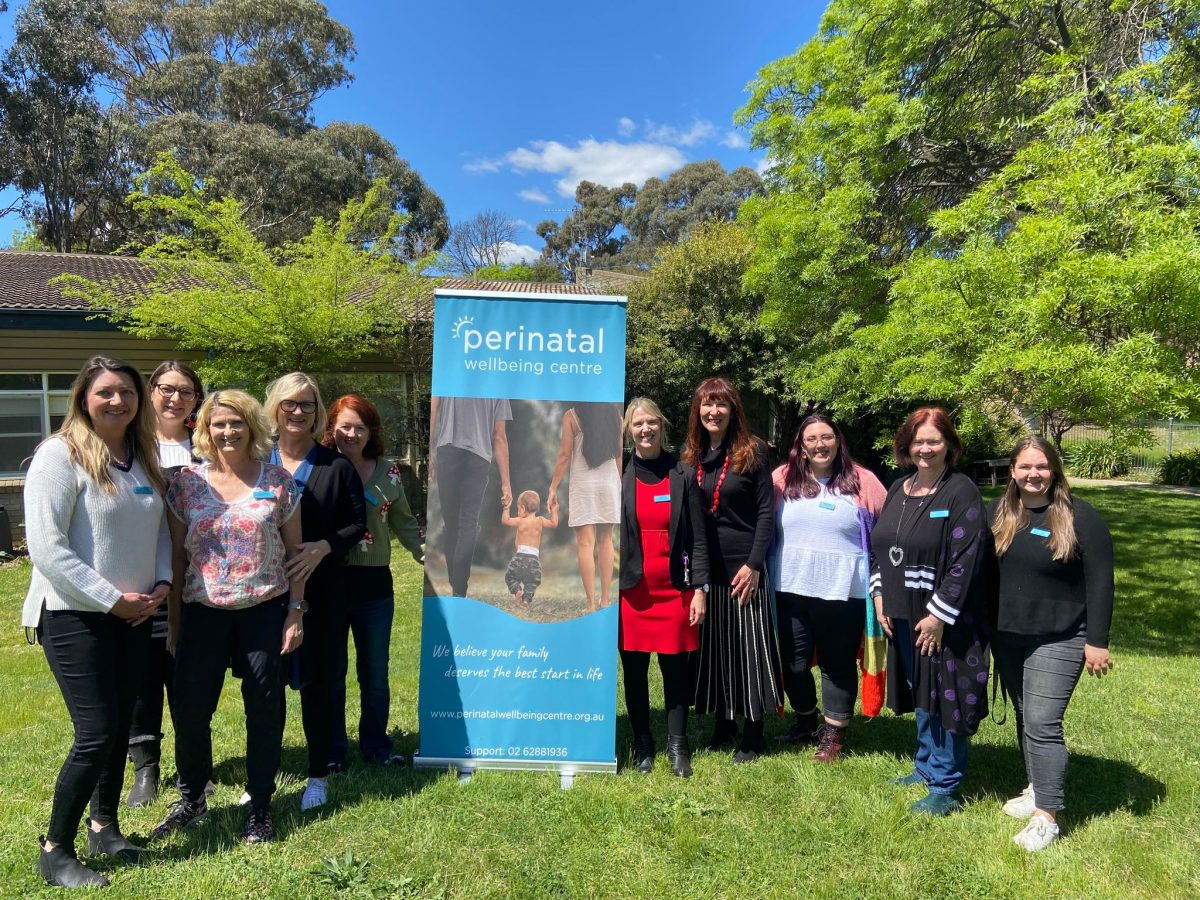
The Perinatal Wellbeing Centre team at Weston offers free group therapy along with fitness and art classes to support mothers who are finding it tough. Photo: Perinatal Wellbeing Centre.
Perinatal Wellbeing Centre CEO Dr Yvonne Luxford said the team had seen an increase in demand for services since the pandemic began, with client numbers doubling in the past three years along with more complex cases of depression and anxiety.
She said there was still a stigma attached to mothers who admitted they were struggling.
“There’s a sexist viewpoint we have that women will automatically be brilliant mothers, and we put strong expectations on fathers as well,” Dr Luxford said.
She said while birth trauma was being talked about more openly, it was also often trivialised.
Dr Luxford wants antenatal programs to talk more about the parents’ wellbeing and mental health, and for the wider community to know post-natal depression or anxiety can develop over time.
Imogen said giving the centre a call couldn’t hurt.
“If you get no benefit from it, you’ve lost nothing. But to have a specialist to ring or see is invaluable,” she said.
“If you open yourself up, you’ll meet other mums which becomes an ongoing support network as well. It can’t hurt.
“It can get better, the darkness doesn’t last forever.”
Contact the Perinatal Wellbeing Centre on 6288 1936.
You can also call Lifeline on 13 14 11 or Parentline ACT on 6287 3833.
*name has been changed for privacy












